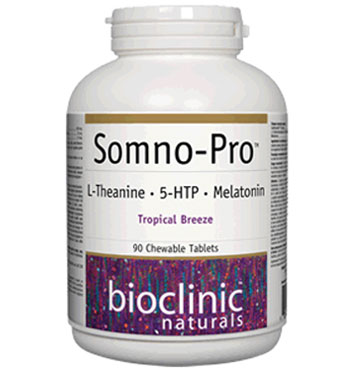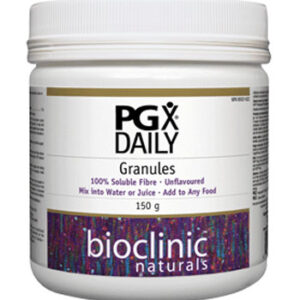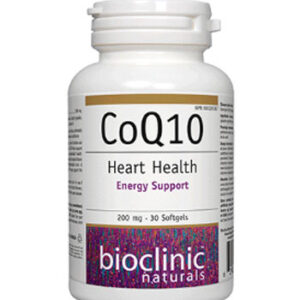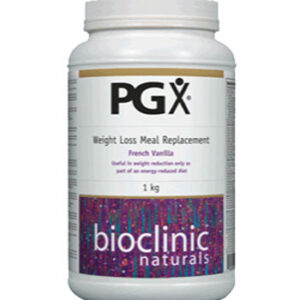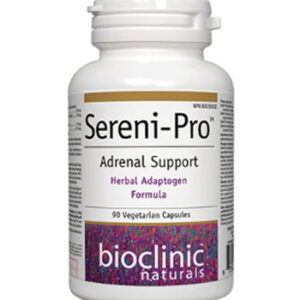Benefits
- Addresses every facet of insomnia: difficulty initiating sleep, difficulty maintaining sleep, waking up too early in the morning and waking up groggy
- Reduces nervous system excitation, which can inhibit sleep
- Contains Suntheanine®, the most clinically studied L-theanine
- Delicious tropical fruit-flavoured chewable tablets
Feature Summary
L-theanine, 5-hydroxytryptophan (5-HTP) and melatonin have all been shown to independently improve sleep quality and quantity, and/or lessen anxiety. L-theanine is an amino acid found almost exclusively in tea,1 which influences the central nervous system through a number of mechanisms, primarily by influencing levels of the neurotransmitters dopamine,2 gamma-aminobutyric acid (GABA),3,4 serotonin,5,6 norepinephrine6, and glutamate.7,8 These effects cause a significant increase in alpha brain wave activity, indicative of a state of wakeful relaxation, increased performance under stress, improved learning and concentration, as well as decreased anxiety.1,9
5-HTP is the intermediary between L-tryptophan and serotonin, a key neurotransmitter associated with sleep, mood, and anxiety.10-12 5-HTP bypasses the rate-limiting enzyme tryptophan hydroxylase, which normally limits the conversion of tryptophan to serotonin.13
Melatonin is also closely related, and is formed by conversion of serotonin in the pineal gland when in low light conditions. Known to regulate many biological rhythms, including the circadian cycle, melatonin has shown clinical benefits for inducing sleep or adjusting sleep cycles.14 Randomized trials have found it to reduce sleep onset latency and improve perceived quality of sleep, without impairing daytime psychomotor performance.15,16
Medicinal Ingredients
| Each Tablet Contains: | |
| Suntheanine® L-Theanine | 100 mg |
| L-5-Hydroxytryptophan (5-HTP) (Griffonia simplicifolia) (seed) | 15 mg |
| Melatonin | 1.5 mg |
Non-Medicinal Ingredients
Organic cane juice, stearic acid, xylitol, silica, natural flavours (pineapple, banana, pomegranate, mango, passion fruit, peach), citric acid, vegetable grade magnesium stearate (lubricant).
Allergens:
Contains no artificial preservatives, colours or sweeteners and no dairy, soy, wheat, gluten or yeast.
Recommended Use:
Recommended Adult Dose: Chew 2 tablets 30–45 minutes before bedtime or as directed by a health care practitioner.
Contraindications
Discontinue use if you show signs of weakness, oral ulcers, or abdominal pain accompanied by severe muscle pain, or if you experience skin changes. Do not use if you are taking blood pressure, immunosuppressive, sedative/hypnotic medication, or if you are pregnant, breastfeeding or have scleroderma. Some people may experience drowsiness. Do not drive or operate heavy machinery for 5 hours after using this product. Exercise caution if involved in activities requiring mental alertness.
Drug Interactions
L-theanine is known to have a hypotensive effect in some individuals, and concomitant use of anti-hypertensivedrugs may potentiate their activity.17
1. Juneja, L.R., Chu, D.C., Okubo, T., et al. (1999). L-Theanine – a unique amino acid of green tea and its relaxation effect in humans. Trends in Food Science &Technology, 10(2), 199-204.
2. Yokogoshi, H., Kobayashi, M., Mochizuki, M., et al. (1998). Effect of theanine, r-glutamylethylamide, on brain monoamines and striatal dopamine release in conscious rats. Neurochem Res, 23(5), 667-73.
3. Kimura, R., Murata, T. (1971). Influence of alkylamides of glutamic acid and related compounds on the central nervous system. I. Central depressant effect of theanine. Chem Pharm Bull, (Tokyo), 19(6), 1257-61.
4. Alternative Medicine Review. Gamma-Aminobutyric Acid (GABA), Monograph. (2007). Altern Med Rev, 12(3), 274-9.
5. Yokogoshi, H., Mochizuki, M., Saitoh, K. (1998). Theanine-induced reduction of brain serotonin concentration in rats. Biosci Biotechnol Biochem, 62(4), 816-7.
6. Kimura, R., Murata, T. (1986). Effect of theanine on norepinephrine and serotonin levels in rat brain. Chem Pharm Bull (Tokyo), 34(7), 3053-7.
7. Kakuda T. (2002). Neuroprotective effects of green tea components theanine and catechins. Biol Pharm Bull, 25(12), 1513-8.
8. Kimura, K., Ozeki, M., Juneja, L.R., et al. (2007). L-theanine reduces psychological and physiological stress responses. Biol Psychol, 74(1), 39-45.
9. Nobre, A.C, Rao, A., Owen, G.N. (2008). L-theanine, a natural constituent in tea, and its effect on mental state. Asia Pac J Clin Nutr, 17 Suppl, 167-8.
10. Birdsall, T.C. (1998). 5-Hydroxytryptophan: a clinically effective serotonin precursor. Altern Med Rev, 3(4), 271-80.
11. Wyatt, R.J., Zarcone, V., Engelman, K., et al. Effects of 5-hydroxytryptophan on the sleep of normal human subjects. Electroencephalogr Clin Neurophysiol, 30(6), 505-9.
12. Soulairac, A., Lambinet, H. (1998). Clinical studies of the effect of the serotonin precursor, L-5-Hydroxytryptophan, on sleep disorders. Schweiz Rundsch Med Prax, 77(34A), 19-23.
13. Shaw, K., Turner, J., Del Mar, C. (2002). Tryptophan and 5-hydroxytryptophan for depression. Cochrane Database Syst Rev, (1), CD003198.
14. Kunz, D., Mahlberg, R., Muller, C., et al. (2004). Melatonin in patients with reduced REM sleep duration: two randomized controlled trials. J Clin Endocrinol Metab, 89(1), 128-34.
15. Wade, A.G., Ford, I., Crawford, G., et al. (2007). Efficacy of prolonged release melatonin in insomnia patients aged 55–80 years: quality of sleep and next day alertness outcomes. Curr Med Res Opin, 23(10), 2597-605.
16. Wade, A.G., Ford, I., Crawford, G., et al. (2010). Nightly treatment of primary insomnia with prolonged release melatonin for 6 months: a randomized placebo controlled trial on age and endogenous melatonin as predictors of efficacy and safety. BMC Med, 8, 51.
17. Yokogoshi, H., Kobayashi. M. (1998). Hypotensive effect of gamma-glutamylmethylamide in spontaneously hypertensive rats. Life Sci, 62(12), 1065-8.
